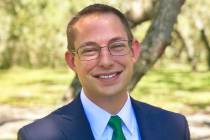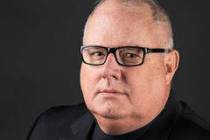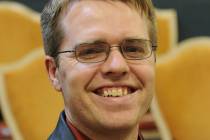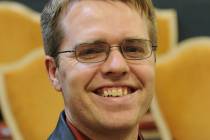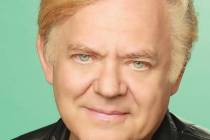Americans really don’t speak English
Dutch loanwords (a word adopted from one language to a second language) inspired my readings this month about the settling of Manhattan, a study of the geography, demography, migration and birth of New Netherlands.
A cacophony of adventurers from the Hudson Bay Dutch, Delaware Swedes, Plymouth English Separatists and Florida’s Huguenots churned the melting pot that became America. The colloquialisms of these diverse adventurers gave rise to “Americanisms.”
For centuries, America resisted adopting a national language, but in 2006 English became our “official” language. I preferred to have “American” recognized. No other people add more new words to the dictionary than America. The American language is a dialect; we give our own meaning to words. We don’t speak or write as the English.
Languages evolve, assimilating words from other languages. Our Pilgrims and immigrants from different countries intermingled their languages with that of the original Native Americans and one another. Words of one culture became words used by all.
“Manhattan” is an example. The Delaware Indians named the island “manhatta” (“hilly island” or “small island”). Manhattan’s hills may have been leveled by development, but this once hilly island, with its co-mingled name, is still a melting pot and key to the economy of the world, just as it has been for over 400 years.
In some ways, it seems Congress is trying to minimize our diversity. We are not reborn Englanders who speak a mother country’s tongue. We speak as much Dutch and Native American as we do Old Norse and Welsh. Italian is woven through our dialect. French is sprinkled into our sentences.
English may have been mandated as America’s official language, but I call the front of my car the hood, not a bonnet; and I go on vacation, not on holiday. A holiday is something different in America.
Then there are the spellings; I wager if one of our elementary students spelled “honour” for “honor” in a weekly spelling bee it would be marked wrong (now there is a case for the Supreme Court). And collective nouns and past-tense verbs? Our editor doesn’t have room for me to even touch the differences.
So why, with all these inconsistencies did Congress decide the language we speak is English? Why not stand on our own, rather than fall back on the language of the Brits?
I speak American with all the intricacies our language affords as it blends the many cultures of America. These cultures are what built America and keeps us strong, interesting and open to change.
So, to keep a colonizer/immigrant-based perspective, I offer the following reminders of how our forbearers influence our language today. I wonder how many of these loanwords the Brits use, and if so, how many are loanwords from America.
Here are a few Americanisms, and from whence they came.
The Dutch influenced Americanisms probably more than any other language, from the bow of a ship, to knickerbocker, filibuster and poppycock. We borrowed their words booze, coleslaw (cabbage salad), cookie (biscuit), and Coney Island (Rabbit Island). The list goes on and on.
From our arrival (on sloops and yachts), to what we eat (buckwheat to waffles), how we cook (stove), to our traditions (Santa Claus) and patriotism (Yankee), these Dutch loanwords are with us every day.
The Dutch were not the only ones to influence our etymological destiny. Old Norse and the Romantic languages provide a lexical smorgasbord. The Welch, Scots, Irish and Scandinavians all salt our verbiage with eloquence.
From Old Norse we receive bylaw, fog, happy, law, litmus, muck, reindeer, saga, Thursday (Thor’s day), troll and window. Moped, ombudsman, gauntlet and smorgasbord are Swedish. From allegro to virtuoso, baritone to violin, apartment to villa, canto to sonnet, burlesque to scenario, and al dente to zucchini, Italy’s lexicon touches anyone who loves music, lives in a domicile or eats. We use the Italian vernacular without a second thought.
The Spanish gave us alligator (borrowed from Arabic). Many words beginning with “al” were originally Arabic loanwords to Spanish then English and America (e.g.; albino, alcove, alfalfa). Thank the French for café (coffee), cream, custard, déjà vu, impressionism and television.
With St. Patrick’s Day near, remember the Irish loanwords of shamrock, kybosh, leprechaun, clabber, hooligan, banshee, boycott, brogue and bog. From the Scots we have canny, glamour, gloaming, golf, scone, skullduggery, tweed, wee and wraith. Bannock, bog, cairn, crag, galore, hubbub, loch, plaid, shanty are Scottish-Gaelic. And the lexeme of crockery, crumpet, dad, druid, flummery, flannel, gull, hog, iron, lawn and penguin are Welsh.
From the Yiddish and Hebrew we have bagel, blintz, chutzpah, jubilee, kosher and shekel. Loanwords adopted from Russia or Germany are relatively few, but Russia gave us beluga, gulag, shaman, tsar and Germany provided the words sauerkraut, strudel and wiener.
Since Leif Erikson’s landing, the Pilgrims at Plymouth, the Dutch in New Netherlands, the Irish and Italian diaspora, and recent immigration from Australia to Zimbabwe, America is, and hopefully always will be, a melting pot. Anyone with a bloodline of intermarriages understands the dangers of too narrow a gene pool. What has made America strong is our diversity, our mixing of cultures, our embracing new ideas — and the people who bring those ideas.
Cat Trico has been a resident of Boulder City since 2003 and is a past president of the Senior Center of Boulder City and co-founder of the Decker Lake Wetlands Preserve. As an author and editor, she contributed to “Rights, Responsibilities, and Relationships” for youth. She can be reached at cat.circa1623@gmail.com.





